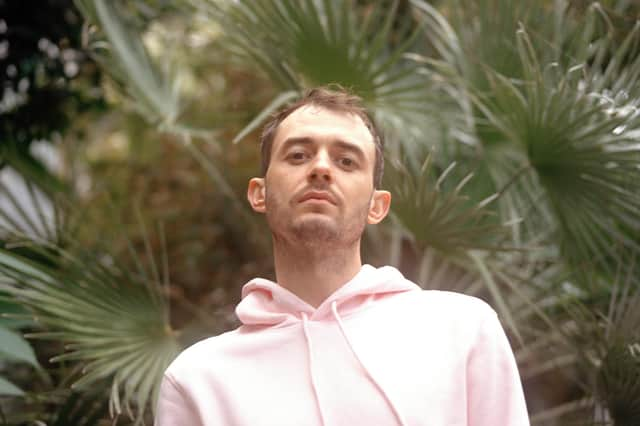Who Killed My Father: French bestseller to take centre stage at Tron's Mayfesto


Édouard Louis is known primarily as a novelist – and an astonishing one at that – but that hasn't stopped him also becoming the darling of the European theatre world. Such directorial heavyweights as Ivo Van Hove, Milo Rau and Thomas Ostermeier have staged adaptations of his work, while this year's Edinburgh International Festival will, for the second time, present a staging of The End of Eddy.
In 2018, Glasgow's Stewart Laing directed a high-tech version of this autobiographical tale of a poor working-class boy growing up gay in northern France. This August, Norwegian director Eline Arbo will tell the same story in a production by Internationaal Theater Amsterdam.
Advertisement
Hide AdIt is, then, all the more to the credit of Edinburgh director Nora Wardell that her young Surrogate Productions has secured the rights to the first UK stage adaptation of Who Killed My Father. The novelist's slim yet mesmerising 2018 book speaks with what one commentator called "an emotional authenticity and a stylistic confidence that is hard to ignore". Written in the crisp, uncluttered prose that characterises Louis's work, it is a deceptively simple attempt by a young man to reconcile himself with the father from whom he was estranged.
Rather than writing a pity-me memoir about life as a sensitive child in a homophobic culture, Louis tries to understand the political forces that shaped his father. As the former factory worker seems to be reaching the end of his life – as an all-too-young 50-something – his son considers the economic system that turned him into a broken and intolerant figure. In this sense, Louis's father was as much a victim as him.
The novel raises urgent political questions. Louis sees the industrial accident that crushed his father's spine as part of a bigger pattern. Government decisions about employment rights, social support and health had a direct impact on a man who became virtually housebound.
As a director, Wardell is engaged by this argument but does not want to be dogmatic: "He's explicit in the text about how the decisions of successive French governments affected his father's body; what it means to have a body that is destroyed by politics. But we're asking certain questions with it and you will make your own connections."
The book's topicality felt all the more acute as she rehearsed the play in the midst of the French election campaign, the most divisive of recent times. It was not hard to see the support for the far-right populism of Marine Le Pen, the defeated presidential candidate, as a reaction to the policies of politicians such as the victorious Emmanuel Macron that have left so many people alienated. Those alienated people are part of the world Louis describes.
"I'd been thinking a lot about the rise of the right," says Wardell. "We've just had the French elections and we've seen it in America and across Europe. Édouard looks at issues of class, sexuality and masculinity and I was interested in how they resonate across borders. What he's talking about is the lack of choice; even though we have a so-called win in France, it's not really a win if it's just to keep out fascists."
Advertisement
Hide AdHer intention, though, is not to preach. This is not a play about the French elections. "My more emotional response to the text was around the theme of revenge," she says. "We can all identify with that from being children stuck in our bedrooms and having the impulse to murder our siblings or whoever else is around. He unpacks this impulse on a political scale from a personal, intimate perspective in a conversation between him and his father."
Casting actor Michael Marcus in the one-man show, the centrepiece of the Tron's annual Mayfesto season of political theatre, she is fascinated by the questions Louis asks. Although the book addresses male concerns, Wardell was no less drawn to it as a woman. It is not just a study of toxic masculinity, but an analysis of society at large.
Advertisement
Hide Ad"Édouard's writing is so compelling for me because of the connections between class, sexuality and gender," she says. "They are deeply complex and not really separable. The creative team have different gender and sexual identities and class backgrounds but we all feel it's about our lives. We all have affinities with it and that's what's so incredible about Édouard's writing."
She adds: "Édouard talks a lot about the experience of being a class traveller; in his case, not feeling part of the working class and then being seen by others as part of the dominant class, but not feeling part of that class either."
Louis, who specialises in what the French call autofiction, has described his writing as a "fight against invisibility". Being gay, being working class, being the victim of a sexual attack (his 2016 novel History of Violence is about being raped), he has grown up in a culture that tends to marginalise voices such as his. Writing is his way of saying he – and millions like him – exist. Not yet 30, he has had an extraordinary success in finally being heard. "Truth is a revenge," he has said.
"I'm very interested in class, power and forms of truth telling, and their relationship to the body," says Wardell. "The connections between me as a woman and Édouard are exactly what he's talking about: his father told him, 'Never act like a girl'. It's the same thing in terms of the rules he was brought up with."
Who Killed My Father is at the Tron Theatre, Glasgow, from 11–14 May, www.tron.co.uk